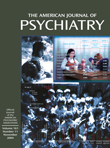One may ask why there is yet another book out about addiction. So many books exist about substance abuse that each individual clinician could choose one that supports almost any position on the topic. The industry continues to grind out one volume after another. Addiction and Change is a refreshing improvement over others of this genre. Carlo DiClemente is acknowledged as one of the developers of the transtheoretical model of behavior change. He makes good use of this approach in dealing with the issues of substance abuse.
An important component of DiClemente’s book is an emphasis on change. This emphasis allows his work to be broadly applicable to changing human behavior on a variety of levels. The process of addiction and change is well covered. The psychological perspective incorporates a review of scientific literature about reinforcement schedules and reward paradigms. The process of intention, contemplation, and decision is described in a way that is interesting to the behavioral scientist and clinician. It is well organized and easy to understand.
Appropriate case examples are given to illustrate important points. There is an excellent chapter on addiction prevention. This portion of the book addresses types of prevention and how transitions should be considered at appropriate times. Common myths are dispelled, and issues regarding societal policy making are discussed. Indeed, the point is well made that prevention needs to be logically addressed at stages of addiction rather than attacked unsystematically. The discussion of dual diagnoses and comorbidity is concise and useful.
This book is reasonably well referenced. The chapters flow in a manner that makes adaptation of the transtheoretical model to changing addictive behavior easy to follow. Moreover, this is an extremely readable reference. The most influential consideration regarding this work is the description of the transtheoretical model of behavior change. The concepts of precontemplation and contemplation are extremely useful additions to the common discussion of temptation and habit formation. Most clinicians realize that unconscious stimuli can result in resumption of old behaviors, but few have articulated this as well as DiClemente. In fact, the integration of the transtheoretical model into the treatment of addiction is what separates this excellent book from the rest of the writings on drug abuse. The author contributes to the literature on habit formation, treatment, and resolution. This is a good book and I highly recommend it.

